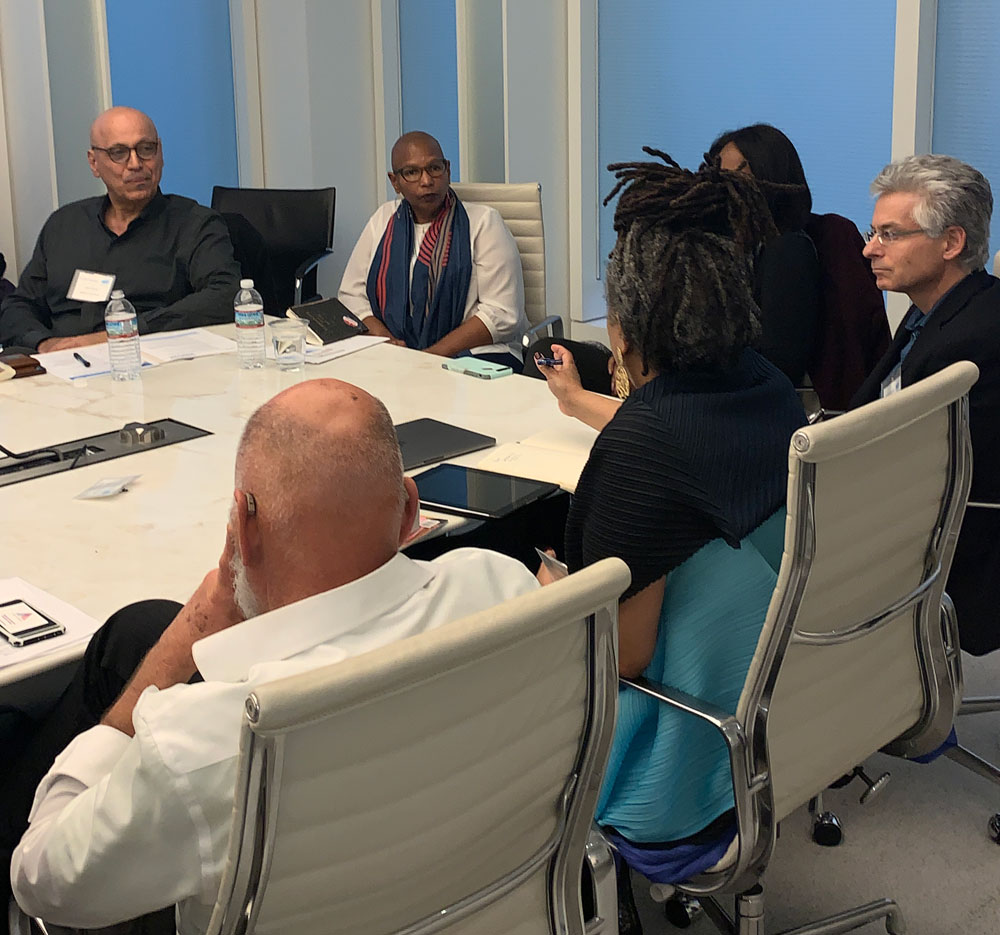

The American Sustainable Business Council (ASBC) was formed a decade ago as a coalition of businesses focused on a “triple bottom line” of profit, people, and planet. It was intended in part to organize a liberal business response that might help check the business lobbying power of the US Chamber of Commerce and show politicians that not all businesses supported a low-tax, low-regulation agenda.
This year, its annual conference, held earlier this month, was organized around the theme of Making Capitalism Work for All. Many conference speakers at the conference maintained that capitalism is not working, at least in its current US incarnation.
But is capitalism reparable? The conference’s title suggests ASBC believes so. And, certainly, at a conference of business leaders, even one with a liberal bent, the fact that ASBC would take this position is hardly surprising. As conference organizer Richard Eidlin said in his introductory remarks, ASBC “believes capitalism is a dynamic force…and that it also needs a reset.”
Still, it did not appear that either the scale or the scope of the challenge was fully appreciated. At the conference, many adjectives placed in front of the word “capitalism” were rolled out: stakeholder capitalism, responsible capitalism, common sense capitalism, conscious capitalism, community capitalism, Nordic capitalism, and market-based capitalism among them.
Naming these “models” aims to highlight the variation in business and government roles possible within a capitalist framework. The point is not exactly novel. The late French economist Michael Albert, for example, wrote Capitalisme contre Capitalisme (Capitalism against Capitalism) back in 1991, in which he contrasted a more “social market” Rhein (German/French/Continental Europe) form of capitalism against a more deregulated US-British variety. Yet the number of adjectives thrown about also betrays a certain conceptual fuzziness. In particular, it allows for the elision of some deep tensions within the US political economy that, to put it mildly, are not simply the product of the neoliberal turn of the economy since the 1970s.
In fact, many, if not most, speakers at the conference, in their analysis of American capitalism’s problems, seemed to place most of the responsibility for the nation’s current wealth and income inequality squarely at the hands of the current focus of much of the business world on maximizing shareholder value. At the conference, this was called shareholder capitalism. Of course, politically, shareholder capitalism is backed by low taxes on wealth and income and limited regulation—a set of policies commonly described as neoliberalism.
For example, Morris Pearl, who chairs Patriotic Millionaires, a group that endorses higher taxes on the wealthy and declares on its website that its members consider themselves to be “proud traitors to their class,” told conference attendees, “America was great in the time I was growing up. Since the 1970s, a few people said, we can make more money by liquidating the businesses and distributing the resources. That doesn’t work well for the long-term, even though it works really well for the short term.”
There is some truth to what Pearl says. Yes, income and wealth distribution were far more equitable in the US a half-century ago during the heyday of managerial capitalism—the quasi-stakeholder capitalism of its time—than today. Still, even then, inequality was endemic. Racial and gender inequality were worse, as was discrimination based on sexual orientation. Even class inequality, though less severe, was hardly absent, as was widely noted at the time.
For example, back in 1966, Dr. Martin Luther King, Jr. said he did not believe that civil rights alone could bring racial equality. King called for economic transformation. As King told his staff, “You can’t talk about ending the slums without first saying profit must be taken out of slums. You’re really tampering and getting on dangerous ground because you are messing with folk then. You are messing with captains of industry. Now this means that we are treading in difficult water, because it really means that we are saying that something is wrong with capitalism. There must be a better distribution of wealth, and maybe America must move toward a democratic socialism.” King, of course, was assassinated in Memphis in April 1968, while supporting striking sanitation workers. King came to Memphis as part of a broader Poor People’s Campaign that he helped lead the last year of his life.
At the ASBC gathering, Benjamin Waterhouse, a historian at the University of North Carolina, noted some of the lack of clarity, “From a historical perspective, there are a lot of reasons to explain why we are where we are at. And there is little consensus of what is most important.”
At the conference, a recent shift by the Business Roundtable, a group of leading US corporation chief executive officers, got considerable attention. As NPQ noted, this summer the group removed “shareholder primacy” language from its statement on the purpose of business, a phrase that the group had employed consistently since 1997. Kristen Silverberg, executive vice president for policy of the Roundtable, said the change in language had impacted some policy positions—most notably, an endorsement of raising the minimum wage. But by and large Silverberg skirted most questions, contending that the diversity of the top 200 corporations made applying standards across-the-board impossible.
Sign up for our free newsletters
Subscribe to NPQ's newsletters to have our top stories delivered directly to your inbox.
By signing up, you agree to our privacy policy and terms of use, and to receive messages from NPQ and our partners.
Meanwhile, other panelists and audience members did relatively little to press the issue. Jay Coen Gilbert, a cofounder of the nonprofit B Lab, a group that has encouraged companies worldwide to go through a rating process to gain the equivalent of a “Good Housekeeping seal of approval” for their triple-bottom line commitment, called the Roundtable’s shift from a shareholder-centric to a stakeholder-centric mindset “an important cultural milestone.” Gilbert added, “Where we have tried to offer encouragement is to note that there are over 11,000 businesses that have already adopted stakeholder governance and plenty of those companies that have raised outside venture capital or go public.”
Especially notable was what was not mentioned—such as limiting the ratio of CEO to worker pay. Back in 1965, the Economic Policy Institute (EPI) reports, CEOs in the US earned 20 times what the average worker did; now, conservatively speaking (the number can be higher depending on how one evaluates the value of stock options), they earn over 200 times what the average worker earns. Thea Lee, who leads EPI, at the conference called for passing the Protecting the Right to Organize (PRO) Act to empower labor unions. Any chance the Business Roundtable would lobby for that? No one asked.
Also not mentioned was that leading Roundtable members, such as Amazon and Walmart, have business models widely acknowledged to require squeezing supplier firms. How does this square with the Roundtable’s one-page statement, which includes a clause that says that business will deal “fairly and ethically with our suppliers”? Earlier, Andy Stern, former president of the two-million-member Service Employees International Union (SEIU), warned that stakeholder capitalism without a definition would just be more public relations, which seemed to be a highly likely outcome based on the responses from many at the conference.
A pair of lunchtime speakers delivered short talks that sought to push conference attendees to consider more far-reaching change. Jaimie Cloud, founder and president of the Cloud Institute for Sustainability Education in New York City, noted that while gross domestic product has been rising in past decades, indices that take into account environmental damage and social outcomes, such as the genuine progress indicator, have been falling. For his part, Vince DiBianca highlighted the need for leadership and cultural change.
A blind spot in the first two plenary panels and the lunch keynotes was a failure to talk about race, which did not really make it into the discussion at the main stage until the afternoon. At the conference’s first afternoon panel, Clint Odom, senior vice president for policy and advocacy at the National Urban League, noted that “we have glazed over issues of wealth, educational, and household income disparity. They are dense, complex. We are not willing to have a conversation about the root causes of these issues.” Odom observed that Federal Reserve chair Jerome Powell recently attributed the persistence of higher rates of black unemployment to the legacy of slavery. “Is he saying this out loud? Did anyone hear?” Odom asked the audience.

The conference did have a panel on racial equity, although it took place as a breakout session, not a plenary. At that session, Donna Daniels of the nonprofit finance firm RSF Social Finance noted the “long tail of slavery in the financial system that we have to interrogate,” saying the roots of our present-day “low road” US capitalism can be traced to the country’s history of slavery. Maya Rockeymoore Cummings, widow of Congressman Elijah Cummings, now running for his vacated seat, called for reparations—while unlikely to be a “silver bullet,” they are a way to “repair past wrongs.” Andy Shallal, who owns a network of metro DC bookstore-restaurants called Bus Boys and Poets, said business needs to host not diversity trainings, but rather “race conversations.” Such conversations, Shallal emphasized, should get at the reality of racial tensions in the workplace, like, “‘What is it like as a white waiter waiting on a black customer? And vice versa?’ Those are the conversations that we don’t have.”
It was only on the final main-stage panel that structural change beyond government regulation got a meaningful hearing. The panel was framed in generational terms—panelists were either millennials or from Generation Z (generally defined as people born between 1996 and 2010).
Lela Klein, who is executive director of Co-op Dayton, a startup food co-op organizing group, graduated from law school in 2009 during the Great Recession. “I have always been skeptical about capitalism or the promise of the American dream,” she said. “On the flip side, if we can break the system open, we can have solutions.” Klein added, “We have to rebalance power in this country,” which for her requires a combination of “worker ownership, traditional unionism, and new forms of unionism.”
Tequilah Johnson, cofounder and vice president of the Nashville, Tennessee-based Equity Alliance, raised the obvious point that “when we talk about capitalism, we have to speak about access to capital.” Her point: you can’t change capitalism if capital’s owners remain the same. Reparations, she added, are one tool that changes who owns capital.
Johnson observed that Americans often tend to “look at issues the way we look at the common cold. We fight the symptoms, but we are not trying to develop an immunity.” Addressing root causes, she noted, requires a different approach, anchored in “a sense of pride and ownership.”













